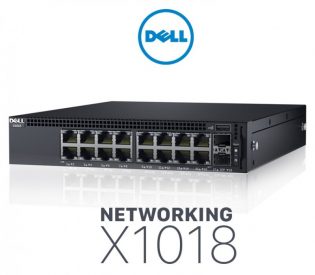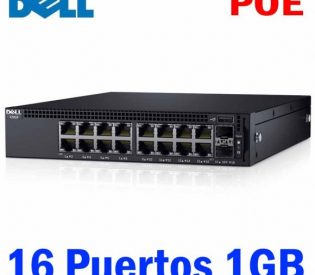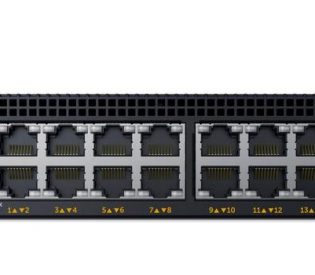Port attributes:
Power reduction for short cables or inactive connections
Autonegotiation for speed, duplex mode and flow control
Supports Virtual Cable Diagnostics by Marvell™ and fiber transceiver diagnostics to provide advanced troubleshooting capabilities for your cable infrastructure
Integrated LEDs for improved visual monitoring and analysis
Auto-MDI/MDIX mode and flow control
Performance:
MAC addresses: 16K
Packet buffer memory: 1 Mb
VLAN:
Supports up to 4096 port-based VLANs. Honors all 4096 VLAN tags
Quality of service:
Honors 802.1p values and honors IP DSCP values
Supports strict priority and configurable weighted round robin (WRR) scheduling across queues
Link aggregation:
Industry-standard link aggregation adhering to IEEE 802.3ad standards (static and dynamic, LACP)
Supports 12 link aggregation groups and up to 4 ports per group
Management:
Local password and restricted IP addresses for secure access to the switch
Port mirroring provides the capability of mirroring 8 source ports and VLAN mirroring to improve network traffi Internal DHCP Server
DHCP client support allows for simplified IP address assignment when used with a DHCP server
Switch software can be easily uploaded to the switch through the web-management interface
Configurations can be easily uploaded to and from the switch through the intuitive web-management interface
Port statistics available through industry-standard RMON
Switch is factory-configured as an unmanaged switch, but can be easily configured as a web-managed switch with the push of a button
Jumbo frame support for packets up to 9,000 bytes
Broadcast storm control to help eliminate network traffic storms
Limited SNMP monitoring and CLI management — See User Guide for details monitoring and troubleshooting
Environmental operating conditions:
100% Lead-free
Operating temperature: 32° to 113°F (0° to 45°C)
Storage temperature: -20º C to 70º C (-4º F to 158º F)
Operating relative humidity: 10% to 90% noncondensing
Standards and additional features supported:
IEEE 802.3ac — VLAN tagging
IEEE 802.3ad — Link aggregation with static LAG support
IEEE 802.1W — Rapid Spanning Tree (1)
IEEE 802.1D — Spanning Tree (1)
IEEE 802.1Q — Port-based VLANs
IEEE 802.1v — Protocol-based VLANs
IEEE 802.1p — Ethernet priority with user provisioning and mapping
IEEE 802.1X — Port authentication
IEEE 802.3x — Flow control
RFC 826 — ARP
RFC 854 — Telnet
RFC 855 — Telnet option
RFC 1155 — SMIv1
RFC 1157 — SNMP
RFC 1213 — MIB II — Updated by RFC’s 2011, 2012 and 2013
RFC 2579 — Textual conventions for SMI v2
RFC 2580 — Conformance statements for SMI v2
RFC 2819 — RMON
RFC 3164 — BSD Syslog Protocol
RFC 3416 — Management Information Base (MIB) for the Simple Network Management Protocol (SNMP) (December 2002)
RFC 768 — UDP
RFC 783 — TFTP
RFC 791 — IP
RFC 792 — ICMP
RFC 793 — TCP
RFC 951 — BOOTP
RFC 1533 — Including 1534, Interoperation between BOOTP and DHCP
DHCP server
RFC 2131 — Dynamic Host Configuration Protocol
RFC 2132 — DHCP options and BOOTP vendor extensions
RFC 950 — Internet Standard Subnetting Procedure
RFC 1123 — Requirements for internet hosts
RFC 1042 — A standards for transmission of IP datagrams over IEEE 802 networks
RFC 1071 — Computing the internet checksum
IGMPv2 snooping
MLD snooping
GARP
GMP snooping
Jumbo frames
IPv6 support
IPv4 and IPv6 Static routing
USB support for update of firmware/configuration
Auto-update of firmware and configuration, from TFTP server/USB
Console port
Authentication via TACACS+ server
Port security
Dynamic ARP Inspection
DHCP Snooping
SHCP Relay
ACL
Voice VLAN
Unidirectional Link Detection (UDLD)
Multiple Spanning Tree (MSTP)
LLDP and LLDP-MED
sFlow V5
Port Profile (built-in scripts)



